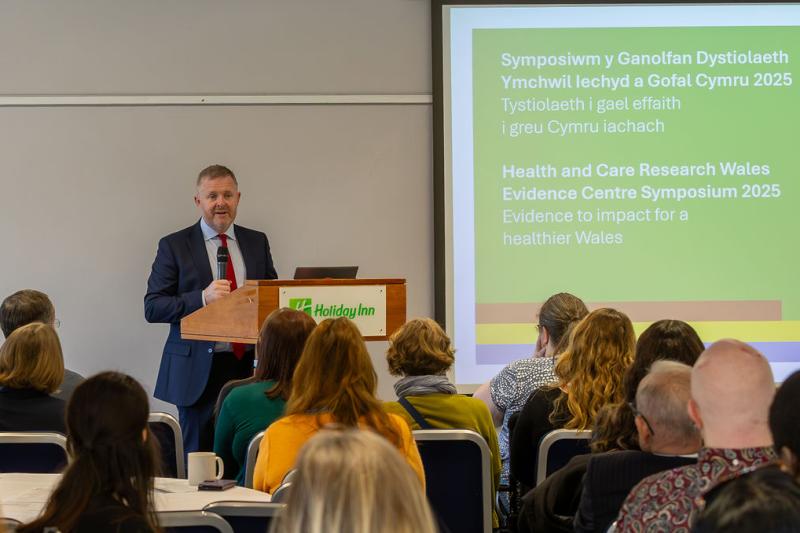
Research finds 15% of people in Wales are living with long-term pain
16 September
A study from the Health and Care Research Wales Evidence Centre has investigated the number of people in Wales living with long-term pain, often called persistent pain, finding it is more common in older people, women and those living in deprived areas.
Researchers also discovered GP appointments and prescriptions were almost two-thirds higher among the 15% of people affected, compared to those without persistent pain, which is defined as pain lasting over three months.
One of those people is 38-year-old Libby Humphris who has been living with persistent pain for 20 years, she said: “Living with persistent pain is really hard. It affects everything, it’s harder to do things and you can’t always do what you want. If I want to go to the rugby on the weekend, I have to stay at home and rest all week to prepare for that.”
“I’ve become good at putting on a smiley, happy persona, but some days I wake up and I think, I can’t pretend I’m okay today. It’s an invisible illness, I sometimes need to use a wheelchair, and I get treated a lot differently because it’s a physical aid people can see.
You just don’t know who is living with pain and it impacts everything.”
Using data from the Secure Anonymised Information Linkage (SAIL) Databank, researchers looked at the age, gender, health and health service use of those living with persistent pain, as well as other demographic information.
The research team concluded some patients, including older people and those from more deprived backgrounds, may not be getting the specialist care they need, reflecting wider social inequalities.
Libby, who is Co-lead for Public Involvement at the Evidence Centre and the Public Partnership Group member for the study, said: “Members of the public can give the research team a real-life view of the processes we go through as patients.
“One of the researchers has said previously, through talking with members of the public they get reminded it’s not just a research project, we're actually living with this on a day-to-day basis and I think that's really important to remember.
"It’s so important to bring it back to the patient."
In 2023, the Welsh Government marked persistent pain as a national priority, and the results of this study will help inform decision-making around current and future services, capacity planning and aid in implementing health policies.
To help improve care for people living with persistent pain, researchers recommended better recording and identification of the condition in GP practices, tackling barriers to specialist support and ensuring patients’ experiences are central to service design.
Natalie Joseph-Williams, Associate Director of the Health and Care Research Wales Evidence Centre, said: “Persistent pain is a major public health concern. It has a significant impact on quality of life, places considerable demand on the NHS and we need to better understand who is most impacted.
"We are proud the Health and Care Research Wales Evidence Centre in collaboration with the Population Data Science team at Swansea University has been able to provide vital research evidence to decision makers, ensuring future policy and practice can tackle areas of unmet need.”
Keep up to date with the work of the Health and Care Research Wales Evidence Centre by signing up to our newsletter and read the full report on the Evidence Centre's website.


